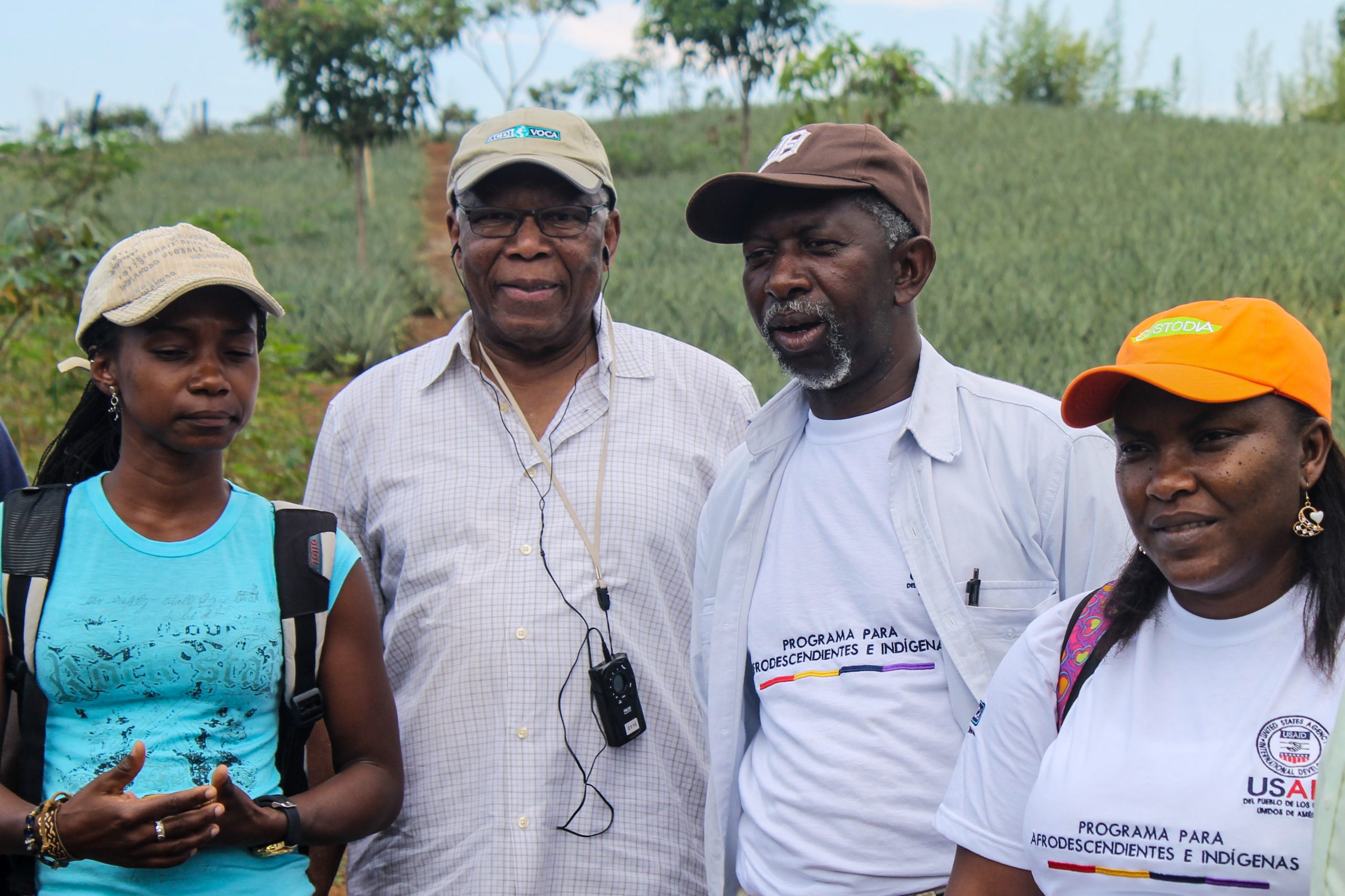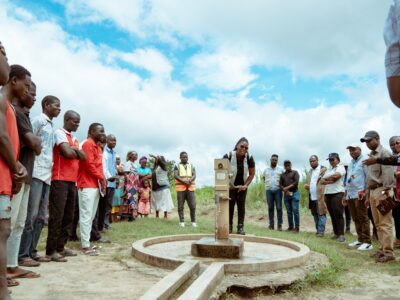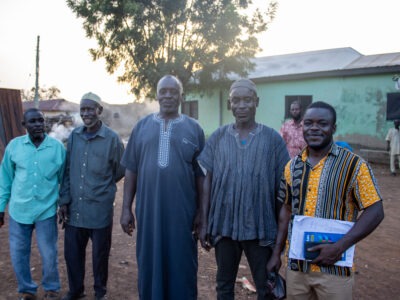
A Q&A with Mort Neufville, newly named director emeritus of ACDI/VOCA’s Board of Directors
Dr. Mortimer Neufville (2nd from left in photo from Colombia visit above) joined ACDI/VOCA’s Board of Directors in 2001. A lot has changed since then. Below, he shares reflections on his time serving on the board, as ACDI/VOCA grew and expanded into new regions of the developing world. Dr. Neufville served as board chair from 2008 to 2017.
______________
Q: Tell us about how you came to join the board.
A: I was asked by the CEO if I’d be willing to come on the board because there was no one from higher education. The board at that time was primarily made up of cooperative associations and the donor community. We were embarking on expanding the volunteer program, and most of the volunteers were coming out of higher education. I was the first African American on the board. My election to board chair was the first for a non-cooperative member.
Q: After you joined, how did the board change or evolve?
A: I suggested to the board chair that if we were going to be making decisions on international development activities, we ought to become more familiar with the projects.
So, we created a projects committee, and we would hear from senior staff on the various project activities that were being proposed as well as those that were being implemented.
“Visiting the projects was very important in expanding the knowledge base of the board and enabling the board to make decisions.”
Mort Neufville, director emeritus, ACDI/VOCA Board of Directors
Q: In what ways did you see ACDI/VOCA evolve as an organization over the years?
A: What really vaulted ACDI/VOCA more into what I would call the real developing countries was the Farmer-to-Farmer Program. That is when ACDI/VOCA really started to get to the continent of Africa.
I said to the CEO and the staff that, in this day and age, you cannot be doing development work and not be focusing on the continent of Africa because that’s where most of the development activities are going to be occurring in the future.
Q: What other key moments or achievements did you witness?
A: At that time, the portfolio of ACDI/VOCA was about $50 million. And it went up to $60 million and gradually climbed to $100 million. To me, that was rather a significant accomplishment of ACDI/VOCA, those days really expanding from a budget of about $50 million to a $150 million over a 10-year period. I was extremely pleased by the progress that was made. Because of the work, we have been able to garner the respect of USAID. In the sites that I’ve visited, ACDI/VOCA is held in really high esteem.
Q: You had the opportunity to visit several programs implemented by ACDI/VOCA around the world. Which stood out to you and why?
A: The maize program in Kenya . . . grain marketing, farmers being assisted, and communities being engaged — that program to me was excellent.
There was so much to be done in Jamaica. [That project] really flourished. The focus was on food and agriculture, and then the administration changed in Washington, and agriculture was not a buzzword in development. We had a very outstanding team leader in Jamaica, Karyll [Aitcheson]. Karyll changed the focus to climate-smart agriculture. . . . It went from basic food production to looking at water resources and climate change effects. A very impressive part of that for me was to see the honeybee production by about 50 or so women in the parish of St. Thomas. It was some of the sweetest honey we had ever tasted.
Visiting the project in Colombia and seeing the impact of ACDI/VOCA was really touching.
“It was really touching because a few years before, President Obama visited there. One of the major projects of ACDI/VOCA [in Colombia] was to help [Afro Colombian and indigenous] people with their land tenure.”
MORT NEUFVILLE, DIRECTOR EMERITUS, ACDI/VOCA BOARD OF DIRECTORS
We also visited a place — we had to fly a small plane up there — and went in the field where coffee was being produced. In between the coffee field, we could see the marijuana plants here and there. And ACDI/VOCA was in charge of replacing the marijuana production with coffee. I thought that was a rather bold step by ACDI/VOCA.
Q: What was your impression of the lasting impact of these projects?
A: I was challenged one day by one of my colleagues, who worked at the Millennium Challenge Corporation. . . . [H]e said he was very concerned about sustainability. What happens when ACDI/VOCA leaves? Is the community, or the government, or whoever, are these places being built so that you may be missed but continuity is there for the [efforts] to continue?
“When we leave 10 years later, our work (or the effects of our work) should be visible.”
MORT NEUFVILLE, DIRECTOR EMERITUS, ACDI/VOCA BOARD OF DIRECTORS
Creating these subsidiary organizations, creating these banks, I thought was really important in helping the sustainability.
Q: What do you hope to see for the future of global development?
One of my hopes in development work is that there could be more collaboration between donor countries and development organizations like ACDI/VOCA.
“We do a lot with donors in the U.S., but there are opportunities for collaboration with the Dutch, the British, the Canadians — the global donor community.”
MORT NEUFVILLE, DIRECTOR EMERITUS, ACDI/VOCA BOARD OF DIRECTORS
Q: Speaking of the future, how do you see COVID-19 affecting ACDI/VOCA and the global development industry?
A: This pandemic is really causing us to raise the question of how we do business. . . . It’s so easy for us to send a plane to retrieve our people, but we can’t retrieve our work and take it back. It’s a challenge; however, the saving grace is that we are becoming so advanced in technology that it should not be an issue.
We have to be sure we have the right people in place. When I say right people, I’m not talking about ex-pats but local people, who we can depend on, who are honest, who will align themselves with the organization, as well as the appropriate contacts in government.
“That’s what I like about ACDI/VOCA. They go in to do real development work.”
MORT NEUFVILLE, DIRECTOR EMERITUS, ACDI/VOCA BOARD OF DIRECTORS
We have entered a new norm, and we have to look at that as part of the future.
Comments





